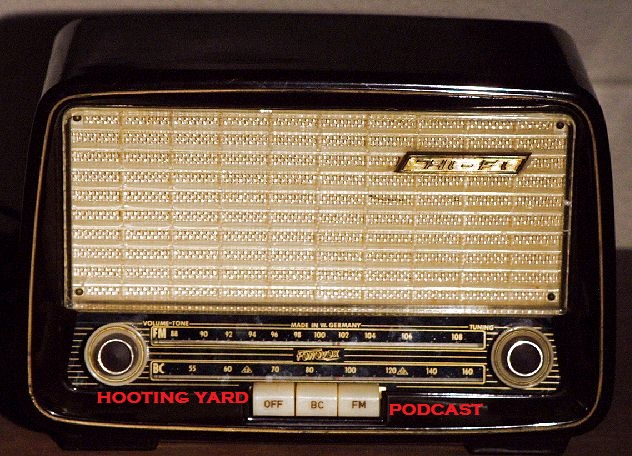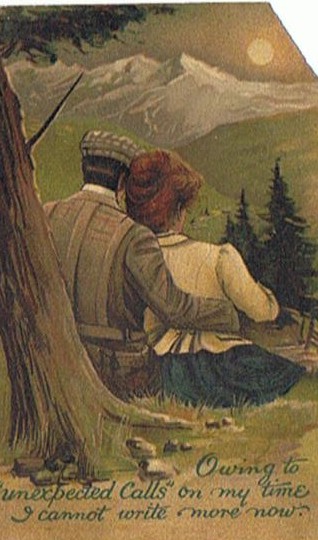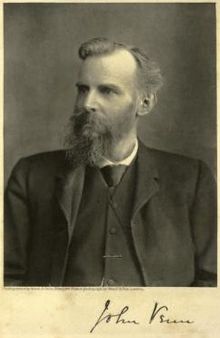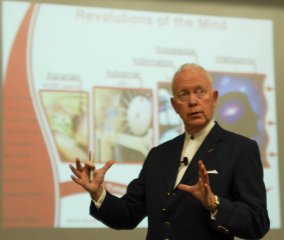I have learned to be very picky when it comes to choosing my hiking companions. Once, I tramped the moors with a skittish widow-woman. Another time, I tramped other moors in the company of a pig-ignorant popinjay. These hikes taught me much, and they were hard lessons, from which my immortal soul took weeks to recover. Sprawled on a pallet in a post-hiking clinic, I had time to review my entire approach to hikes. One thing that became absolutely clear to me is that I needs must have a companion of some kind, for I am temperamentally unsuited to solo hiking due to the particular admixture of blood, black bile, yellow bile and phlegm which makes me what I am.
I did, once, go on a hike all by myself, and it was a disaster. I got hopelessly lost, entangled in a clump of bracken, dive-bombed by a flock of angry guillemots, drenched by rain and stung by hailstones, apprehended by surly border guards and subjected to interrogation in a subterranean interrogation chamber the cold stone walls of which were stained with the blood of peasants, entangled in a clump of gorse, waylaid by banditti, buffeted by gales, accused of trespass in a top secret military installation, deafened by the relentless pounding of voodoo drums, entangled in a clump of nettles, haunted by hallucinatory visions of the skittish widow-woman and the pig-ignorant popinjay, poisoned by befouled water from a deceptively idyllic rill, attacked by tiny flying biting things, strafed by fighter jets, entangled in a clump of hawthorn, besmirched by the excreta of starlings, savaged by weasels, battered and bruised after toppling into a ha-ha, almost suffocated in a slaapsok accident, lacerated by barbed wire, discombobulated by the jumbling of my blood and black bile and yellow bile and phlegm, ridiculed by wayfaring minstrels, burned by the sun, stung by bees, entangled in a clump of thistles, threatened by bellowing cows, and lost, lost, hopelessly lost.
“Never again must you go hiking alone!” shouted Dr Heinrich Weems, my post-hike traumatic neurasthenia syndrome counsellor.
At my first consultation, he had actually forbidden me ever to hike again full stop, but I protested that I would die if I did not hike. This was utter twaddle, of course, but I deployed the full gamut of my thespian skills, learned at the feet of Sir Donald Sinden and Bruce Willis, and Dr Weems was convinced I spoke the truth.
“Ach! You poor fellow!” he shouted, “So if I understand you correctly, you will keel over and die in agony unless you regularly embark upon jaunty hiking expeditions, across moors and heaths, through woods and forests, up hills and mountains, and down vales and dells?”
To which flagrant poppycock I responded with a nod, adding “Yippee-ky-ay, motherfucker”, a Willisism which never fails to do the trick.
In subsequent meetings with Dr Weems, we moved from his consulting room in an agreeable Swiss chalet to his secret underground laboratory. Here, in tenebrous gloom, he induced a catatonic trance by babbling Blavatskyan gibberish into my ears, and then proceeded, with pincers and slicers and a suction tube and a funnel and a Petri dish, to extract samples of my blood and my black bile and my yellow bile and my phlegm. When I regained consciousness, he showed me the jar in which he had mixed my four humours together.
“By means of a pipette,” he shouted, “I am going to feed this goo, diluted with duckpond water, to my experimental squirrels. Then we shall see what we shall see.”
I cancelled my next appointment with Dr Weems. I had no doubt he was a very sensible therapist, but the lure of the hike grew too strong to resist. Each morning I would wake to find that, during the night, I had kitted myself out in full hiking gear, the boots, the socks, the etceteras, and I was even clutching a sturdy stick in my behikinggloved hand. Clearly my unconscious mind was desperate to go a-roaming ‘cross moors and heaths and through woods and forests and up hills and mountains and down vales and dells. Once or twice I was reckless enough to start out alone, but I never got further than my garden gate. Somehow I heard the guttural shouting of Dr Weems inside my brain, and I knew he was right.
Thus did I begin my search for a new hiking companion. I loitered down by the docks, and in penny arcades, and on traffic islands, in post offices and department stores, near electricity pylons, at fashion shoots, under awnings, in railway station canteens and airport chaplaincies, on quaysides and in souks. Wherever I loitered, the skittish widow-woman and the pig-ignorant popinjay descended upon me, imploring me to take them hiking, but I rebuffed them with Sindenisms and Willisisms, or, in extremis, bashed them with a shovel.
It was around this time, stormy March, that I began to wonder if perhaps Dr Heinrich Weems might be the ideal person to accompany me on a hike. It was true that he was shouty and guttural, that we had a professional doctor-patient relationship, that he lumbered about on crutches, that his table manners were as disgusting as Franz Kafka’s, that his bouffant was riddled with beetles and other creepy-crawlies, and that he had never shown the slightest interest in the great outdoors, indeed that his sickly pallor and near-blindness suggested he never ventured outdoors at all. Yet weighed against this were many points in his favour. Well, not many, but some. Perhaps not some, just one. And if not even one, if in fact he might prove to be the most odious companion a hiker could ever hike with, still, I was desperate, and surely not even Dr Weems could be as vile a fellow hiker as the skittish widow-woman or the pig-ignorant popinjay? When stormy March turned to stormy April, I cast aside all doubts and caught a bus to the slope on which his agreeable chalet teetered.
I rapped upon his door with my sturdy stick, but answer came there none. Then I noticed that the door was ajar. I pushed it open, gingerly, for I find that gingeriness is invariably the best approach when pushing open the ajar doors of chalets, no matter how agreeable they are. Equally gingerly, I entered the chalet lobby. There was no sign of life, unless you count the sudden darting, across the floor, from wainscot to wainscot, of one of the doctor’s experimental squirrels. The sight of it made me shudder, and I was about to turn on my heel and wait at the bus stop for the next bus back to town when I spotted something resting on the chalet lobby telephone table. It was not a telephone. It was a voodoo ouanga bag, and it had been torn open, bitten open, savagely, with dripping fangs, and its contents were strewn on the tabletop, luck stones, snake bones, lizard jaws, squirrel teeth, bat bones, frog bones, black hen feathers and bones, black lamb wool, dove hearts, mole skins, images of wax and clay, candy made of brown sugar mixed with liver, mud, sulphur, salt, and alum, and vegetable poisons. I shuddered again, and while I was in mid-shudder the trapdoor leading down to the underground laboratory creaked open, and from the fumous black depths emerged Dr Heinrich Weems.
It was he, yet it was not he. For as I discovered, by poking him with my stick, he had been transformed into a zombie. But what a zombie! A brainless being, bereft of life, the walking dead he might be – but one with a rucksack and a woolly sweater and a lanyard around his neck from which dangled a transparent plastic pocket crammed with maps. A zombie with stout boots and thick socks and a sturdy stick. He was a zombie ready for a long and arduous hike.
As we strode together out of the chalet into the great outdoors, clouds scudded and the sun shone. We set off for the moors and the heaths, for the woods and the forests, for the hills and the mountains, for the vales and the dells. Within me stirred my blood and black bile and yellow bile and phlegm, in perfect harmony. Within my hiking companion, the zombie that once had been Dr Weems, nothing stirred, nothing at all, save for a magnificent implacable brainless devotion to the hike.





